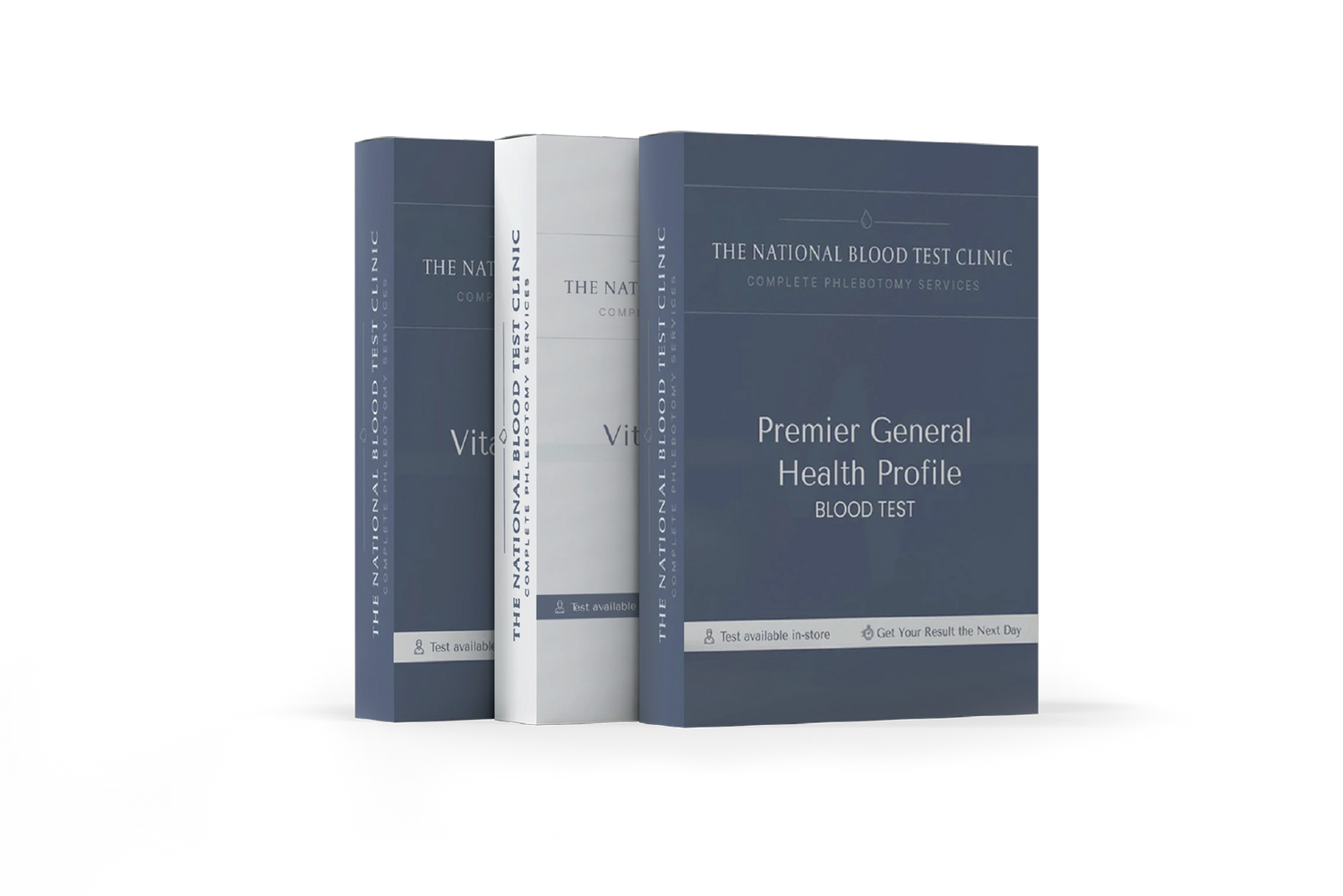
UK’s Trusted
Partner for Private and
Home Blood Tests
The National Blood Test Clinic makes health checks simple, fast, and reliable. Unlock your body’s potential with our comprehensive range of Home and Private Blood Tests, through convenient at-home test kits or safe venous draws at our trusted partner clinics. All tests are confidential and UKAS-accredited.
Why do Regular Health Checks Matter?
Staying well-informed and updated about your overall well-being is important. Our
private blood tests offer valuable insights to help you:
-
Understand your current health status.
-
Detect early signs of conditions like diabetes, lipid profile, or heart disease.
-
Help improve physical and cognitive health to ensure long-term health benefits.
-
Boost athletic performance with targeted testing.
-
Stay proactive with easy access to health monitoring.
Whether you're managing existing health conditions or simply want peace of mind, a full blood test screening can be your first step towards better health.
Who We Help?
At The National Blood Test Clinic, we provide a smooth and convenient private blood testing facility (at-home or clinic-based tests) across the UK.
-

Busy Professionals
Flexible home blood tests and in-clinic phlebotomy options designed to fit into your schedule.
-

Fitness & Performance
Track your body’s fuel, recovery, and hormones with our sports performance blood tests. Perfect for athletes and gym-enthusiasts.
-
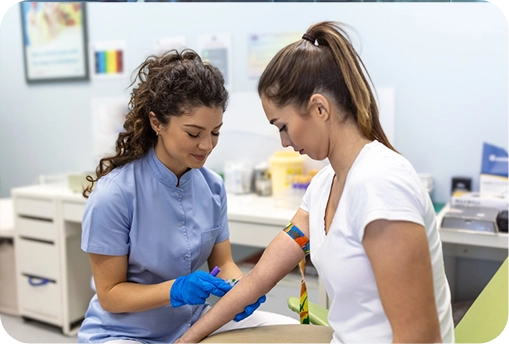
Women’s Health & Hormone Support
From fertility testing to menopause and hormone panels, our women’s health checks provide clear insights into every stage of life.
-
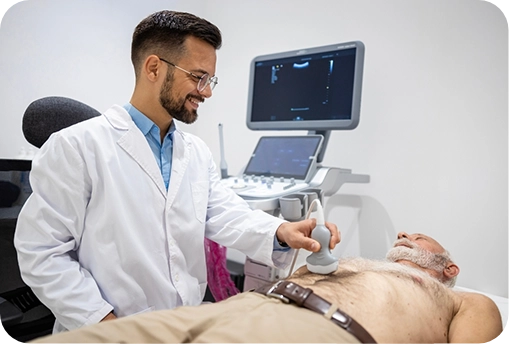
Over 50s & Preventative Health
Stay ahead of potential health risks with our cholesterol, thyroid, liver, and prostate health tests.
-

Digestive & Allergy Concerns
Our food intolerance, coeliac risk, and allergy blood tests help identify triggers and improve your long-term digestive health.

1. Book a Private Blood Test in the UK:
No GP Referral Needed We make health screening simple with convenient online blood test booking across the UK. Access trusted and accurate results from home. Book a blood test kit at home or get private blood tests near you with our partner phlebotomy locations.

2. Professional Blood Analysis at Home:
Reliable Diagnostics & Trusted ResultsExperience the reliability and convenience of home blood testing with our easy-to-use blood analysis kits. Simply collect your blood sample from home, seal it properly, and post it back to us. Receive accurate results without visiting a test centre, a convenient and stress-free way to manage your health from home.
Explore Our Test Categories
-

Allergy & Immunology Test
Shop Now -
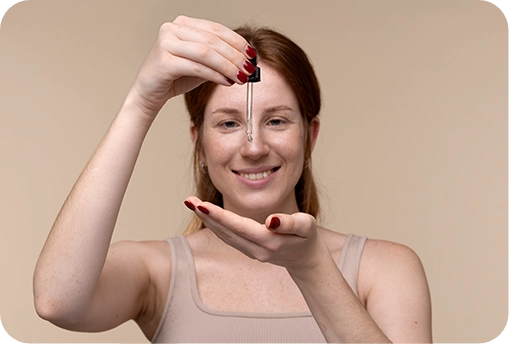
Anti-Aging & Hormonal Health
Shop Now -
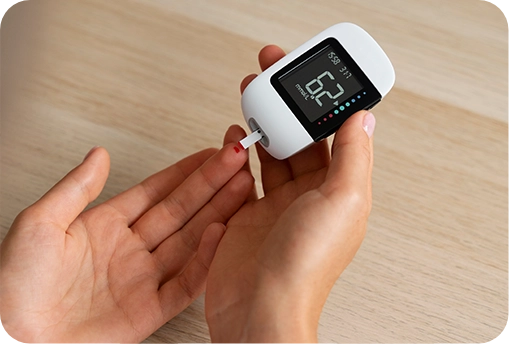
Diabetes & Blood Sugar
Shop Now -

Fatigue & Energy
Shop Now -
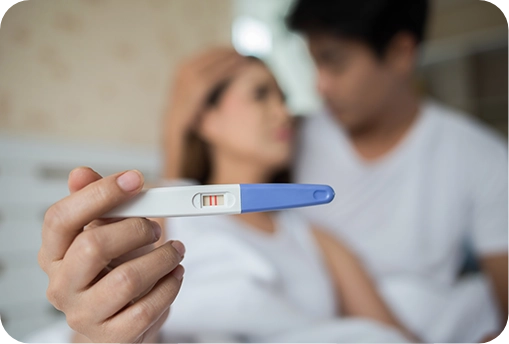
Fertility & Pregnancy
Shop Now -

Fitness & Performance
Shop Now -

General Health
Shop Now -

Gut & Digestive Health
Shop Now -

Heart Health
Shop Now -

Liver Health
Shop Now -

Menopause Support
Shop Now -
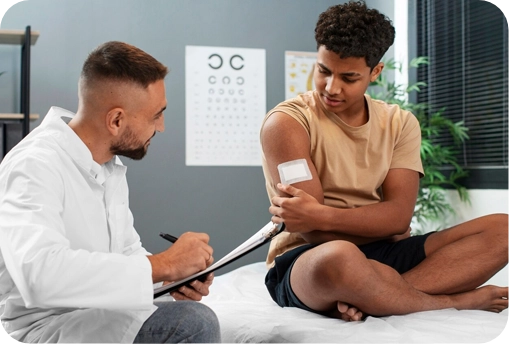
Men's Health
Shop Now -

Thyroid & Hormonal Health
Shop Now -

Vitamin & Nutrient Health
Shop Now -

Women's Health
Shop Now
Home vs Clinic: Which Blood Test Is Right for You?
We offer two types of blood testing options to suit your lifestyle, health goals, and the complexity of your results:
-
At-Home Blood Tests Via Finger-Prick Method
Blood Tests from the comfort of your home.- Use a simple finger-prick test kit to collect a small blood sample yourself.
- Send your sample back to us for secure and accurate laboratory testing.
- Ideal for general health checks, vitamin and hormone monitoring, and lifestyle tracking.
- No clinic visits or appointments required, perfect for busy professionals.
-
Phlebotomy Appointment for Venous Blood Test
Advanced testing with a larger sample drawn by a professional.- Collected by our partner phlebotomist clinic
- Enables more comprehensive testing that may require larger blood volumes
- Ideal for advanced profiles such as full hormone panels, fertility, menopause, or in-depth diagnostics
- Especially useful when multiple markers are being assessed at once
SERVING ALL OF THE UK
The National Blood Test Clinic serves nationwide, including London, Manchester, Birmingham, Leeds, Glasgow, and Bristol.
Frequently Asked Questions
Can I take my blood sample at home?
Yes. With The National Blood Test Clinic’s home blood test kits, you can collect your sample quickly and safely using a simple finger-prick method. Each kit includes sterile equipment, clear instructions, and prepaid return packaging.
How accurate are at-home blood tests?
Our at-home blood tests in the UK are highly accurate because fully accredited laboratories analyse all samples. The results are reviewed by qualified clinicians to ensure reliability, just like tests taken in hospitals or private clinics. However, accuracy also depends on following the instructions carefully.
Which blood tests can be performed at home?
Most routine health checks can be done with a home finger-prick blood test kit. These include:
- Cholesterol and lipid profile tests
- Diabetes and HbA1c tests
- Thyroid and hormone checks (Male and Female)
- Vitamin and nutrient tests
- Allergy and intolerance tests
What are the cautions and preventive measures for self-sampling?
When using a home blood test kit, always follow the provided instructions to ensure safety and accuracy. Wash your hands thoroughly, use the sterile lancets included in your kit, and avoid touching the collection tube opening. It’s important to fill the sample tube to the required level to prevent delays in analysis.
How long do blood test results take?
Turnaround time depends on the test type. For most home blood test kits, results are available within 24–48 hours after your sample arrives at our accredited lab. More complex hormone or allergy panels may take 3–5 working days.
What do borderline blood test results mean?
A borderline result means your test value is close to the normal range but not clearly high or low. This doesn’t always indicate a medical problem, but it may suggest the need for monitoring, lifestyle changes, or further testing.
Subscribe to our emails
Get updates on new blood tests, exclusive offers, and health tips delivered straight to your inbox.



















